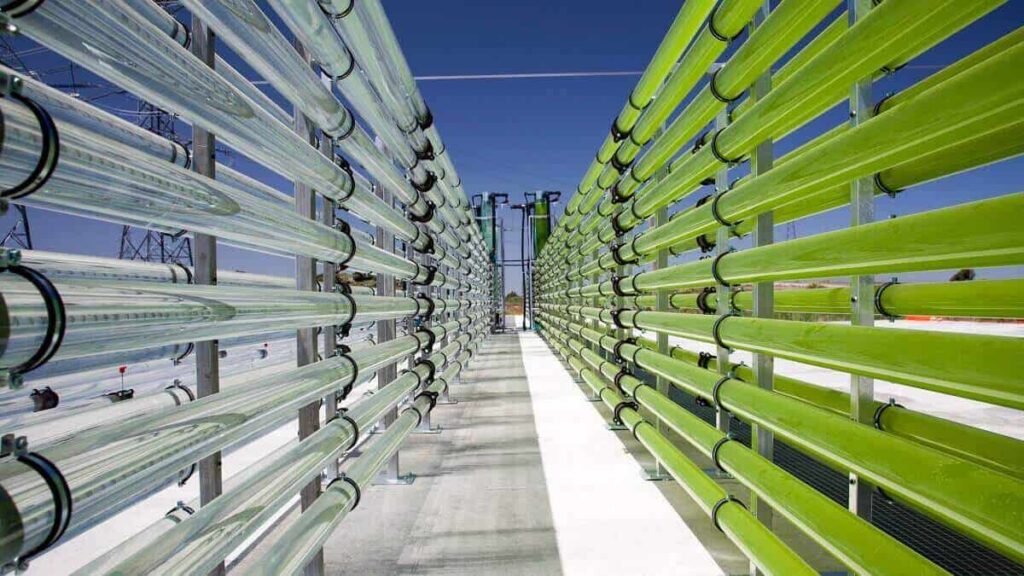Scientists call for new climate models to challenge the assumption that wealthy countries can grow indefinitely.
Picture: Tubular bioreactors filled with green algae fixing CO2, Arcos de la Frontera, Cadiz, Costa de la Luz, Andalusia, Spain. Credit: Santiago Urquijo/Getty Images.
An international team of scientists says that we cannot rely on technology to meet climate targets – instead, wealthy countries must change their lifestyles to dramatically reduce emissions and avoid climate breakdown.
The new article, published in Nature Energy, calls for the urgent development of new climate models that explore ways economies can remain stable without constantly growing, reducing the reliance on potentially unfeasible new technologies to fix our problems.
“We cannot keep temperature rises below 1.5 degrees using technology alone – unfortunately this will require lifestyle changes in wealthy countries,” says Manfred Lenzen from the University of Sydney, co-author of the study.
“Because we’ve not implemented significant emissions reductions over the past decades when we should have, we now need to reduce emissions rapidly and like we’ve never done before.”
Models attempt to predict future temperatures and climate based on current data and simulations; they can follow a variety of pathways to different outcomes based on our choices now.
Many of these current models accept that economies will continue to strive for growth, and factor in dramatic technological change in order to meet climate targets such as the Paris Agreement.
The United Nations Framework Convention on Climate Change, for example, argues that innovative technology is essential for not only cutting greenhouse gas emissions but also adapting to the impacts of climate change.
But this new study argues that technological fixes – such as carbon capture and storage, nuclear fusion, or injecting particulates into the atmosphere – may be unfeasible to scale up to the required levels, especially as increased economic growth drives up energy demand.
The authors point out that to remove carbon from the atmosphere at a fast enough rate, direct air carbon capture and storage (DACCS) methods may use up to half of the world’s current electricity generation. This would then make it difficult to make the global transition to renewables.
“Scientists have raised substantial questions about the risks of negative emissions technologies and the feasibility of sufficiently decoupling economic growth from rising emissions,” says Jason Hickel, lead author of the paper from the London School of Economics and Political Science (LSE).
“Put bluntly, these approaches may not be adequate to address the crisis we face. We’re gambling the future of humanity and the rest of life on Earth because of the assumption that GDP must continue to grow in rich countries.”
This echoes previous research arguing that over-reliance on new technology is enabling us to delay a dramatic reduction in emissions, creating a dangerous cycle of technological promises and re-framed climate change targets.
Instead, scientists call for widespread cultural, social and political transformation.
“It doesn’t have to be this way,” Hickel and colleagues write. “High-income nations can maintain economic stability, invest in innovation and achieve strong social outcomes without the need for additional growth, thereby making mitigation easier to achieve.”
They instead propose policies that will reduce inequality, guarantee living wages, shorten the working week, and ensure access to healthcare, education and other essential services.
“If we share the yields of our economy more fairly, we can ensure good lives for all without plundering the planet for more,” Hickel says.
By updating existing climate models to address alternative ‘post-growth’ scenarios, the authors conclude, this would “help broaden the range of policy options for public debate”.
Article Credit: cosmosmagazine
